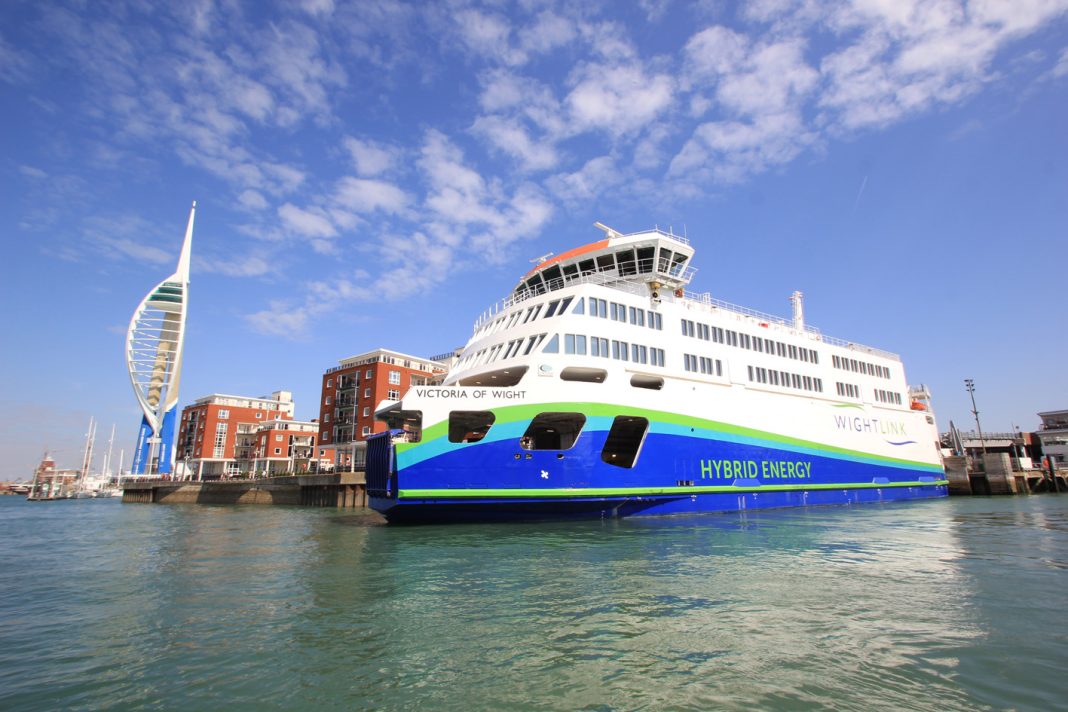Tackling climate change is the number one priority for the UK Chamber of Shipping and on 28 October 2019 Chief executive Bob Sanguinetti visited Wightlink in Portsmouth where he was shown their state-of-the-art hybrid ferry.
Victoria of Wight, which takes passengers all year round to the Isle of Wight, entered service in August 2018 and was the first hybrid ferry in England.
The ship uses a hybrid energy system, which works much like a hybrid energy car, allowing her to run partly on electricity when required. At the time of launching the Victoria of Wight used 17% less fuel than the next largest ship on the route, the St Clare.
Speaking during his visit Bob Sanguinetti, Chief Executive of the UK Chamber of Shipping, said:
“At the UK Chamber of Shipping we are determined to do all we can to help tackle climate change. I wanted to see for myself how this great ship was doing its bit to reduce carbon emissions. If shipping is to tackle climate change, we need to see greater use of hybrid technology and I want to see more hybrid ferries being developed and used across the UK and the wider world.”
Chief Executive of Wightlink Keith Greenfield commented:
“We at Wightlink are proud to have England’s first hybrid energy ferry in our fleet. Victoria of Wight is key to our commitment to reduce emissions but also gives our customers a quieter and more comfortable journey across the Solent. We are delighted with our new flagship and she is already proving popular with islanders and visitors to the Isle of Wight.”
The UK Chamber of Shipping has called for a new Green Industrial Revolution in the UK to take advantage of the move to a cleaner, greener economy.
With the launch of the Maritime 2050 strategy and Clean Maritime Plan, this has set a clear pathway for industry and government to work together to innovate and develop new technologies.
The Clean Maritime Plan will require all-new ships trading in UK waters, both international and domestic, to be designed with zero-emission capable technologies. The targets set are a huge challenge.
The UK will need concerted R&D activity, led and incentivised by government, and supported by the industry, manufacturers, academics and innovators.
The UK Chamber of Shipping also believes new investment in skills, research and innovation and infrastructure will be needed so the UK can take advantage of future opportunities that will be presented by a move to a clean growth economy.



